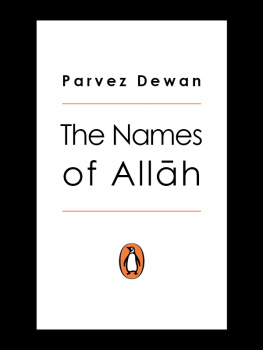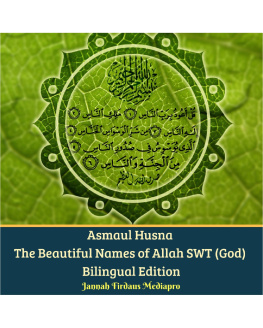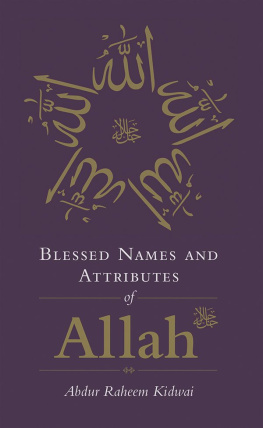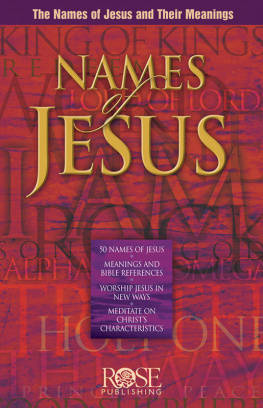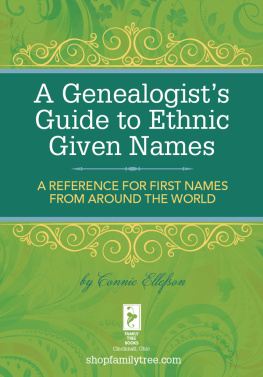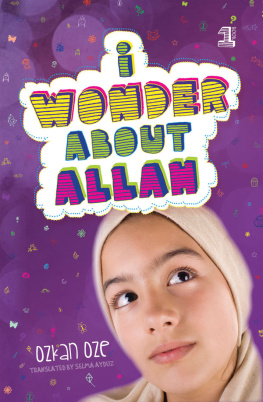Introduction
Allh, it is generally believed, has ninety-nine Names. The eminent traditionists, Tirmiz ( AD 822-892) and Ibn Mj ( AD 822-886) have recorded a detailed Tradition (Hads) to this effect, on the authority of Ab Hurairh, who was a contemporary of Prophet Muhammad, peace be upon Him ( PBUH ). The learned scholar quoted the Holy Prophet ( PBUH ) as saying, God has ninety-nine Names: one less than a hundred. He who commits them to memory [and recites them] will enter heaven.
The Names of Allh are called Al Asm ul Husn. This phrase has been mentioned in verses 17.110, 20.8, 59.24 and 7.180 of the Holy Qurn. Asm means names. The most obvious meaning of husn is beautiful. However, it can also mean excellent. These Names are called thus because no matter how you look at themintellectually, emotionally or as a scholaryou will only find excellence and beauty. Each name has a meaning and indicates a desirable quality or attribute, such as compassion, mercy or truth. Every human should attempt to inculcate these qualities in his/her own character. The Holy Prophet ( PBUH ) said, Absorb these divine qualities in your own self.
The Saudi Ift says, To bring [the Names of Allah] to remembrance, is part of our Prayer and Praise. However, must one call God by any particular name? Srah 17 (Bani Isr-il/Al Isr/The Children of Israel). 110 embodies the finest of Islmic liberalism and tolerance when it says, Call upon Allh, or call upon Rehmn: by whatever name you call upon Him (it is well), for to Him belong the Most Beautiful Names. The Saudi Ift comments, Allh can be invoked, either by His simple name, which includes all attributes, or by one of the Names implying the attributes by which we try to explain His nature to our limited understanding.
However, there exists no definitive list of the Names of Allh that we can refer to. A note by the Ift of Saudi Arabia wryly observes, These Beautiful Names of Allh are many. The [Hads] related by Tirmiz, accepted by some as authentic, mentions 99 Names of Allh. There are two broad schools of thought. According to the first, some of the hallowed titles of Allh are Names, while others are attributes. Some scholars exclude certain titles from their canons on the ground that these are attributes, and not Names. Thus, the Maulns Bastav and Thnv say that all compound titles are attributes. Jln makes a similar distinction. This school of thought says that God has only ninety-nine Names, even though Islm recognizes as many as 1200 attributes of Allh.
According to the second, more prevalent view, all titles other than Allh are attributes. Notes to the King Fahd printing of the Holy Qurn state, [Allhs] Names refer to His attributes which are like titles of Honour and Glory. Therefore, most scholars do not exclude attributes from their canons. For instance, Al Gh afru is an attribute. And yet it is included in all canons except Karm/Mishkt.
In short, each side has valid arguments. However, this is an academic debate that does not concern the layman. Even eminent scholars do not agree on which titles are Names and which are attributes.
Those Names of Allh that have been mentioned in the Holy Qurn are called Taufq. The word means Names that have not been invented by man, but have been coined by God Himself.
*****
Ninety-Nine Names: Different Canons
Friedlander and Muzaffereddin (1993) write, 99 Names [of Allh] are in the Qurn. The twentieth-century author Bilkiz Alladin makes a similar statement. This would imply that the ninety-nine Names in their books are from the Holy Qurn. But this is not so. At least twenty-three Names in the Friedlander-Muzaffereddin canon have not been mentioned in the Holy Qurn. The majority of canons cited in this book have included these twenty-three Names. Friedlander, Muzaffereddin and Alladin, it would seem, have done so without realizing that their canons have not been derived wholly from the Qurn. The great Tirmiz, too, had made a similar mistake. The noted right-wing scholar Mauln Maudoodi (1919) commented with understated sarcasm, Tirmiz thought that the Names in his list had been derived from the Holy Qurn. But the Mauln didnt let us know if Tirmiz was right or wrong. So I decided to check. At least three Names in Tirmizs canon (Al Jall, Al Mubd and Al Mud) are not from the Holy Qurn.
Several of Allhs best-known Names have been mentioned in the Traditions and not in the Holy Qurn. Not only does the Mauln hold them equally valid, he is also the most articulate advocate for their inclusion in the canon. All saints and scholars (with the possible exception of Ibn Hazm) have, consciously or unwittingly, included in their canons Names that have not been mentioned in the Holy Qurn. And this has been the biggest discovery for me and for almost all the scholars whom I consulted while researching for this book.
Like everyone elseMuslim as well as interested non-MuslimI grew up on the tradition that Allh had ninety-nine Names. When I was asked to write this book, I decided to reflect some of the variety of opinions (and sects) that exists within Islm. I wanted at least two points of view regarding the meanings of each Name. What I noticed instead was that the first two books that I consulted agreed on just ninety Names. Each had at least nine Names that the other did not.

